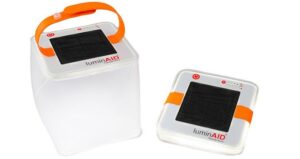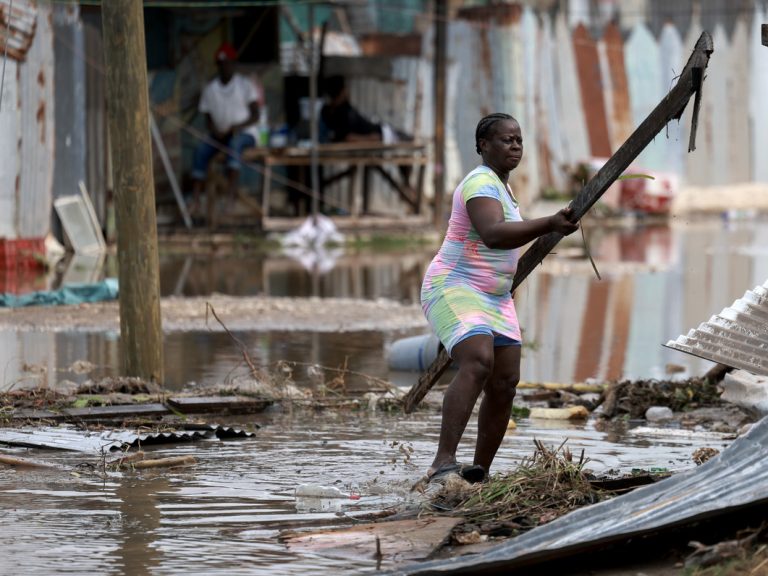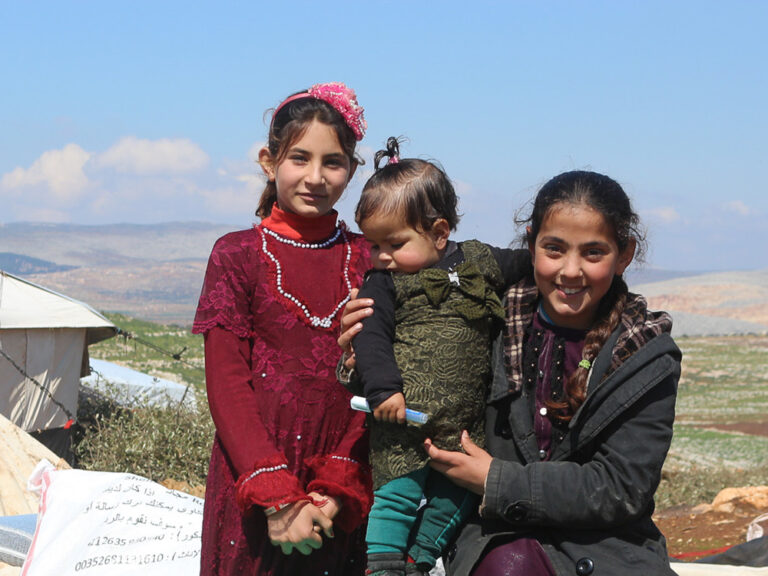Thousands of people in the Caribbean have been supported with emergency shelter after Hurricane Beryl left a trail of devastation across the islands.
We’ve distributed tents, mosquito nets, solar lights and kitchen sets to people uprooted from their homes in Carriacou and Petite Martinique.
Some fear it will be years before they’re able to rebuild their homes. That’s why emergency shelter aid can be life-changing when people have been left with so little.
The peak of hurricane season is coming. Your donation today can help us respond to disasters around the world, wherever we are needed.
How has ShelterBox responded?
We’ve supported people in Carriacou and Petite Martinique in Grenada, where many buildings, homes, and schools were damaged or destroyed.
Tents are providing shelter and privacy for families living in community buildings or evacuation centres. People have been able to return to the areas where their homes were and regain a sense of normality as they continue to recover and rebuild.
What aid has ShelterBox provided?

Mosquito nets are helping families protect themselves from diseases like dengue fever

When there is no power, solar lights are making it possible for families to spend time together

Cooking sets are enabling people to share a hot meal together, bringing comfort and normalcy
Key facts about Hurricane Beryl
Hurricane Beryl rapidly developed from a tropical depression to a hurricane.
It made landfall as a Category 5 hurricane – the strongest level. Winds of 160mph / 260km/h were recorded, destroying homes, uprooting trees, and bringing down power lines.
The storm weakened as it continued across the Caribbean, but still caused widespread destruction with hurricane strength winds.
Hurricane Beryl has caused widespread damage across the Caribbean.
The storm first made landfall in St Vincents and the Grenadines, and Grenada. It then moved along the southern coast of Jamaica, the Yucatán Peninsula of Mexico, and on towards Texas.
The damage is extensive with the homes on entire islands damaged or destroyed. Thousands of people have been displaced from their homes and are living in temporary shelters. Carriacou and Petite Martinique, part of Grenada, have been badly affected with the Grenada Prime Minister saying Carriacou island was flattened in half an hour.
There is a huge amount of destruction across a very wide area in the Caribbean. Airstrips and ports are damaged, there is no power in some places, and communication is difficult.
There are a lot of different places where people need help. That means the humanitarian response will span nations and borders.
An estimated 200,000 people have been impacted. The entire populations of both Grenada and Saint Vincent and the Grenadines have been affected.
But with communications disrupted, the number of people impacted is expected to rise. Some of the smaller Caribbean Islands are reporting over 90% of houses being damaged or destroyed.
Typically Category 4 or 5 Hurricanes do not develop in the Atlantic this early in the season. Hurricane Beryl is the earliest Category 5 storm ever recorded. Scientists think that the storm developing this early is due to warming sea temperatures, a result of the climate crisis.
Meteorologists were also surprised by the speed in which the storm intensified from a tropical depression to a Category 5 hurricane.
It had been predicted that 2024 could be the one of the worst years on records for severe hurricanes. The early appearance of Hurricane Beryl suggests these predictions might be right.
This is very worrying for communities that find themselves in the path of these storms – they might not have the time to recover from one disaster before the next hits.
Yes, ShelterBox has responded in the Caribbean after Hurricane Beryl.
We partnered with Rotary to get emergency shelter aid and other essential items to thousands of people uprooted from their homes in Grenada.
We used emergency shelter aid that we had stored in Panama for our response. We store aid in Panama and other strategic locations around the world, to make sure we’re ready to respond before a disaster happens.
Being prepared for disasters
Hurricanes and other severe weather events happen every year. These become disasters when people are not prepared, and not supported to recover afterwards.
Some people become trapped in a cycle of disaster, lacking time to recover from one disaster before the next one strikes. With storms becoming more powerful people in the Caribbean could face repeated destruction.
We have emergency shelter aid like tarpaulins, tents, and tools stored in Panama and other strategic locations around the world. Hurricanes happen every year – so before a disaster happens, we make sure we’re ready to respond.
Watch this video learn more about how we prepare for disasters. You can also learn more on our website about the cycle of disaster and how we monitor and prepare for storms and hurricanes.



